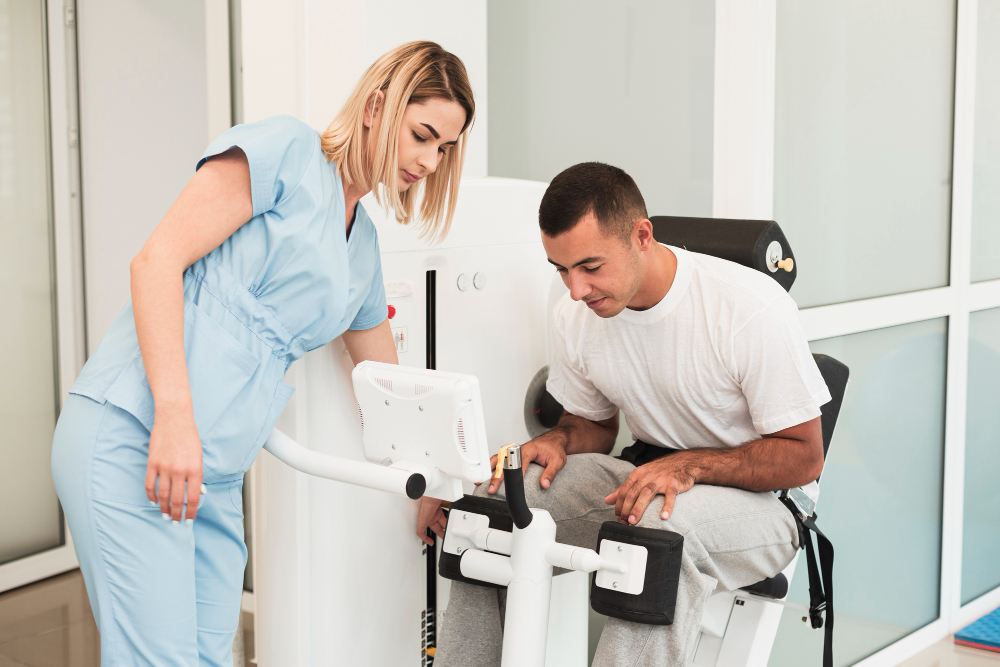
Understanding the Phases of Post-Fracture Rehabilitation
A fracture can greatly limit an individual's mobility and do
the activities of daily living that contribute to the overall health. Bethel
understands that recovery is not restricted to a cast or surgery but extends
beyond that into rehabilitation. We are a leading orthopaedic rehabilitation centre in Kerala and have found that strength and
function, as well as confidence, are critical components of a phase-wise
treatment for post-fracture rehabilitation. Let's explain the different
rehabilitation phases of post-fracture recovery and discuss how professional
physiotherapy helps you through each phase.
Phase 1: Acute Management
After the fracture occurs, this stage will begin. The
attention during this time will be on pain control, swelling control, and
guarding the area. Most people wear casts or splints or have a surgical
fixation to keep the area immobilised during healing. Our physiotherapists will
keep a close watch on every aspect of your injury. They will ensure that your
swelling and pain remain under control, with a view to avoiding any
complications. In most cases, even while in this period of immobilisation, we
can prescribe gentle exercises for the unaffected limbs or joints to prevent
stiffness, encourage circulation, and maintain general fitness. Awareness of
posture, safe movements, and education on the care of daily activities are also
important in this stage of rehabilitation.
Phase 2: Early Mobilisation
Once healing is established by the orthopaedic team, the
early mobilisation process starts typically within a few weeks. At this stage,
our objective is to gradually introduce movement, increase joint mobility, and
encourage light muscular activation. Each situation requires professional
supervision and a customised exercise programme, and we provide those through
Bethel, the best physiotherapy clinic in Kerala.
Therapists will assist patients in incorporating progressive exercises
restoring range of motion and reducing stiffness in addition to using light
loads for progressive strengthening of muscles while being mindful not to
overload the healing bone. At this point, passive and active-assisted
range-of-motion (ROM) exercises are begun, and patients get back to doing
simple day-to-day tasks under strict supervision.
Phase 3: Functional Recovery
At this time, the programme aims primarily at the
improvement of maximal strength, endurance, and coordination. By this point,
motion at the joint or limb has improved, with activation of associated
musculature; hence, the effort in rehabilitation becomes denser. Patients begin
to do more complex activities, such as solitary ambulation, stair ascent with
descent, or carrying objects, depending on the area of injury. The essential
elements of therapy now are strength training, balance training, and gait retraining.
Correction of posture and movement patterns for avoiding injury starts being
worked upon by therapists too.
Phase 4: Return to Activity
This is the final stage of rehabilitation, where the patient
is reinstated back to the normal routine or even to sports if the patient is a
sports person. This final stage of rehabilitation to achieve specific functions
is customised toward one's employment, hobbies, or sports. Return to activity
might be slower for some patients, particularly the elderly or those with
pre-existing health conditions. Along the way, our staff provides patients with
holistic care. As a cardiopulmonary rehabilitationcentre in Kerala too, Bethel is particularly concerned with overall
fitness, heart function, and breathing exercises that can be advantageous for
fracture patients, particularly those bedridden for long periods.
Why a Structured Rehab Plan Matters
Without direction through rehabilitation, the patient may
likely remain stiff and have chronic pain and misalignment of the bones for
extended periods. The different phases of healing perpetuate what happened
before. Missing or rushing through any phase can prolong recovery time and
threaten ultimate mobility. Our multidisciplinary care assures that every
patient is receiving the appropriate care at the right time. Trust Bethel for a
recovery journey built on expertise, care, and compassion.




